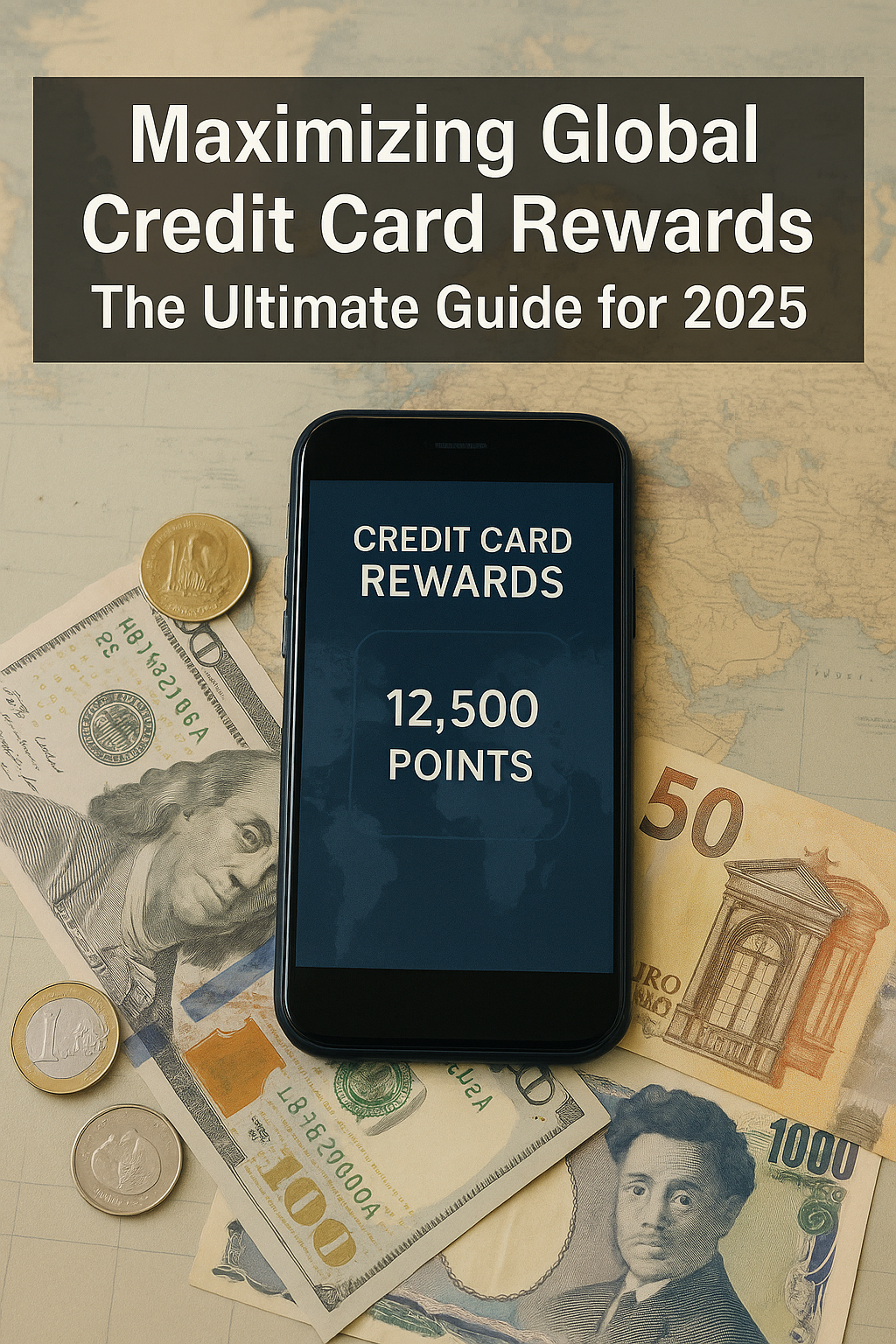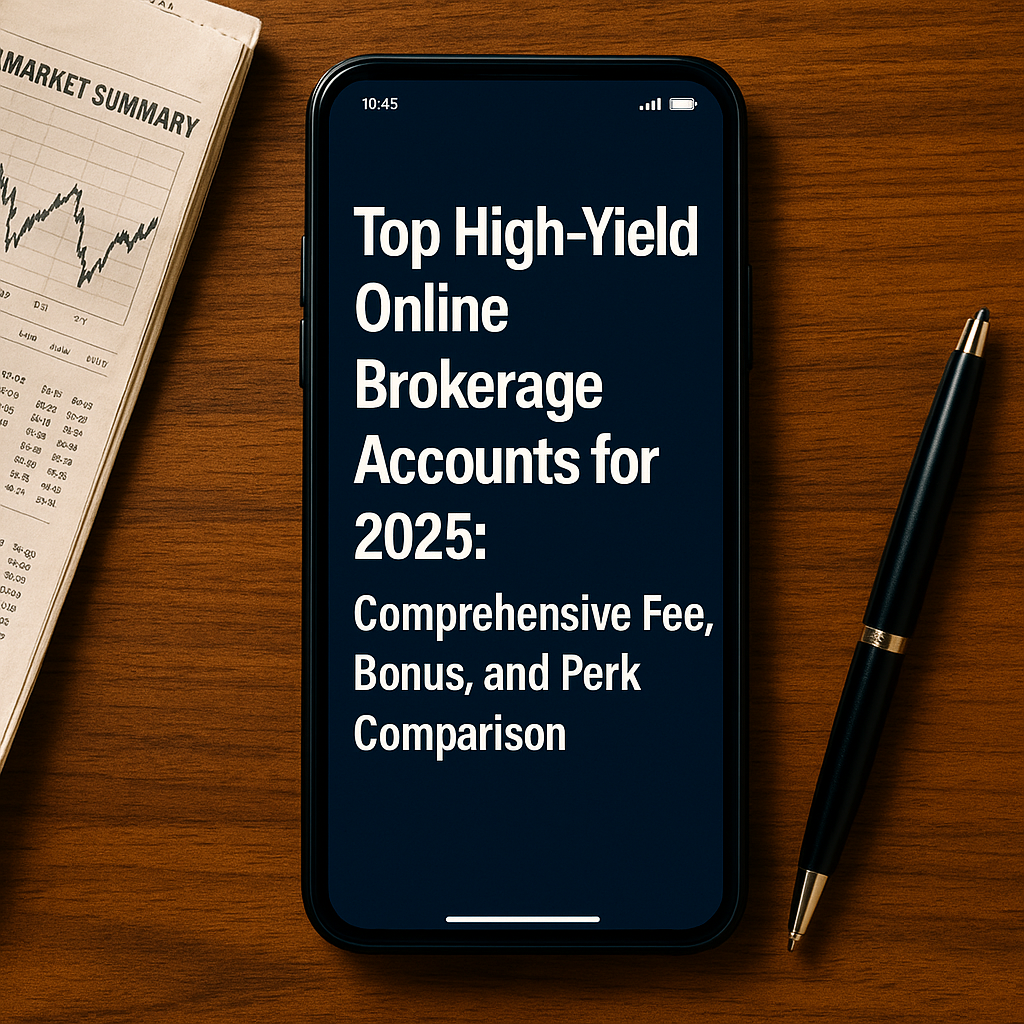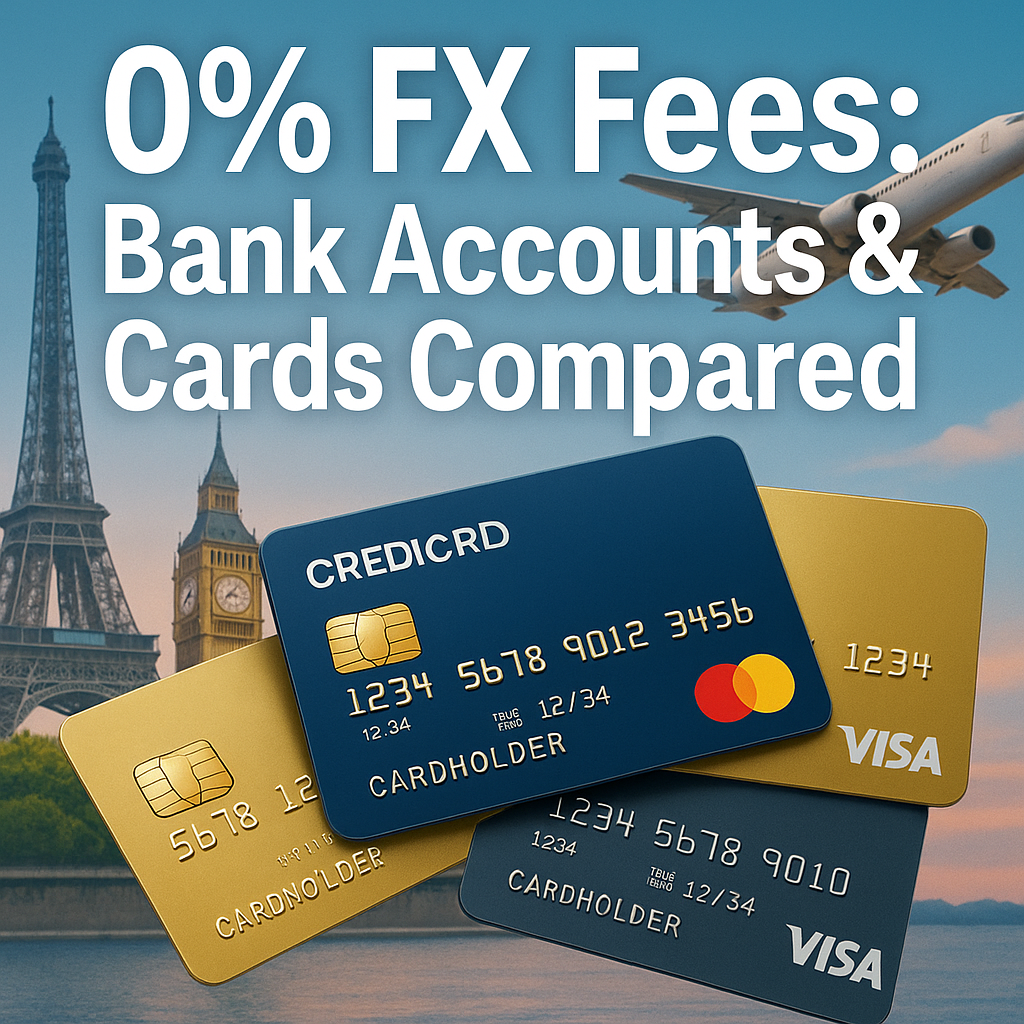Introduction
In an increasingly cashless and borderless world, credit card rewards have become one of the most lucrative ways to earn valuable perks—whether you’re chasing free flights, statement credits, or luxury hotel stays. In 2025, the competition among issuers is fiercer than ever, with banks and fintech companies dangling sign-on bonuses worth up to $1,000 in travel credits and offering accelerated rewards in niche spending categories. This guide will walk you through the strategies you need to maximize your global credit card rewards, covering everything from selecting the right cards for international usage to advanced redemption tactics that squeeze every last cent of value from your points and miles.
By the end of this article, you’ll understand:
- How to choose credit cards optimized for worldwide acceptance and minimal foreign transaction fees
- Which spending categories to target for bonus multipliers
- Strategies for meeting sign-up bonus requirements cost-effectively
- Best practices for transferring points between loyalty programs
- Tactics to avoid devaluation and expiration
Let’s get started.
1. Choose Cards Built for International Travel
1.1 No Foreign Transaction Fees
The first rule of global credit cards is simple: never pay foreign transaction fees. These fees typically range from 1.5% to 3% on every purchase made outside your home country. In 2025, top contenders include:
- Chase Sapphire Reserve® – 3× points on travel (after earning your travel credit), no FX fees
- Citi Premier® – 3× points on air travel, hotels, and foreign spending, no fees
- Capital One Venture X – 2× miles on every transaction, plus 10× on Capital One Travel bookings, no fees
Make sure any card you carry abroad explicitly waives FX surcharges.
1.2 Global Network Compatibility
Choose cards that run on Visa or Mastercard networks, which tend to have the broadest acceptance globally. American Express is accepted in many destinations but can be spotty in smaller merchants—so carry at least one Visa or MC as a backup.
2. Target High-Return Spending Categories
2.1 Travel and Dining Multipliers
In 2025, most “premium” travel cards offer elevated returns in travel and dining:
- 3× to 5× points at hotels, airlines, and sit-down restaurants
- 2× to 3× points on everyday categories like groceries or transit
Action Step: Consolidate your dining, ride-share, and hotel expenses on one card that offers the highest bonus for that category.
2.2 Rotating and Promotional Categories
Cards like the Chase Freedom Flex℠ and Discover it® series promote quarterly categories where you can earn 5% back on up to $1,500 of spending. Although capped, those categories (e.g., gas stations, online shopping) can yield massive point hauls if you shift your budget accordingly.
3. Unlock Generous Sign-Up Bonuses
3.1 Timing Your Applications
Banks often reset their bonus offers every few months. To maximize your haul:
- Stagger applications by at least 90 days to avoid hurting your credit score.
- Apply after targeted mailers or referral links—they frequently bump bonuses by another 10,000–20,000 points.
3.2 Meeting Minimum Spend Wisely
Bonuses typically require $3,000–$5,000 spent in the first three months. Rather than buying gift cards or throwing money at bills, consider:
- Placing regular bills (utilities, insurance premiums) on the new card
- Prepaying taxes where allowed
- Purchasing business-related supplies if you own a small enterprise
4. Master Point Transfers and Redemptions
4.1 Transfer Partners and Sweet Spots
Credit card points often have 1:1 transfer ratios to airline and hotel loyalty programs. In 2025, standout partners include:
- Chase Ultimate Rewards® → United MileagePlus at 1:1
- Amex Membership Rewards → Air France/KLM Flying Blue at 1:1 (with occasional transfer bonuses)
- Capital One Miles → Singapore KrisFlyer at 1:1
Sweet Spot Example: A one-way business class ticket from New York to Tokyo on ANA can cost just 75,000 KrisFlyer miles—versus revenue fares north of $3,000.
4.2 Booking Internal Flights and Positioning
Use points for intra-region flights at discounted rates. Instead of paying $200 for a 500-mile flight, many programs charge only 7,500–10,000 miles, freeing up cash for other expenses.
5. Avoid Common Pitfalls
5.1 Devaluations and Expirations
Loyalty programs periodically adjust award charts—and points can expire after 12–24 months of inactivity. To guard against this:
- Keep at least one transaction on every loyalty program annually.
- Monitor program emails for devaluation announcements and shift balances when transfer bonuses appear (e.g., 30% extra miles during a promo).
5.2 Credit Score Management
Opening and closing cards impacts your average account age. Maintain a long-standing card (with minimal or no annual fee) to preserve the length of credit history, which accounts for 15% of your FICO score.
6. Crafting Effective CTAs and Driving Traffic
6.1 In-Content Referrals
Embed contextual calls-to-action:
“Ready to start earning 3× points on every dollar you spend? Apply for the Chase Sapphire Reserve® today and get 60,000 bonus points after $4,000 in purchases within three months.”
Link your CTA with a tracked referral or affiliate link to attribute conversions accurately.
6.2 SEO Best Practices
- Keyword Focus: Target long-tail search terms like “best no foreign transaction fee credit cards 2025”
- On-Page Elements: Include your keyword in title tags, headers (H1–H3), meta description, and image alt text.
- Internal Linking: Link to related articles (e.g., “Top 7 VPNs for Secure International Banking”) to distribute authority.
- User Engagement: Add a “Comparison Table” section with collapsible rows—this keeps readers on the page longer, signaling quality to search engines.
Conclusion
Maximizing global credit card rewards in 2025 requires more than carrying a single rewards card—it demands a coordinated strategy: choosing the right fee-free cards, targeting high-return categories, timing your applications, leveraging transfer partners, and weaving in powerful CTAs. By following the tactics in this guide and coupling them with rigorous SEO and traffic-driving measures, you can transform everyday spending into a stream of valuable points, miles, and credits.
Stay tuned for Part 2, where we’ll dive into “Top 7 VPNs for Secure International Banking and Streaming in 2025.”









